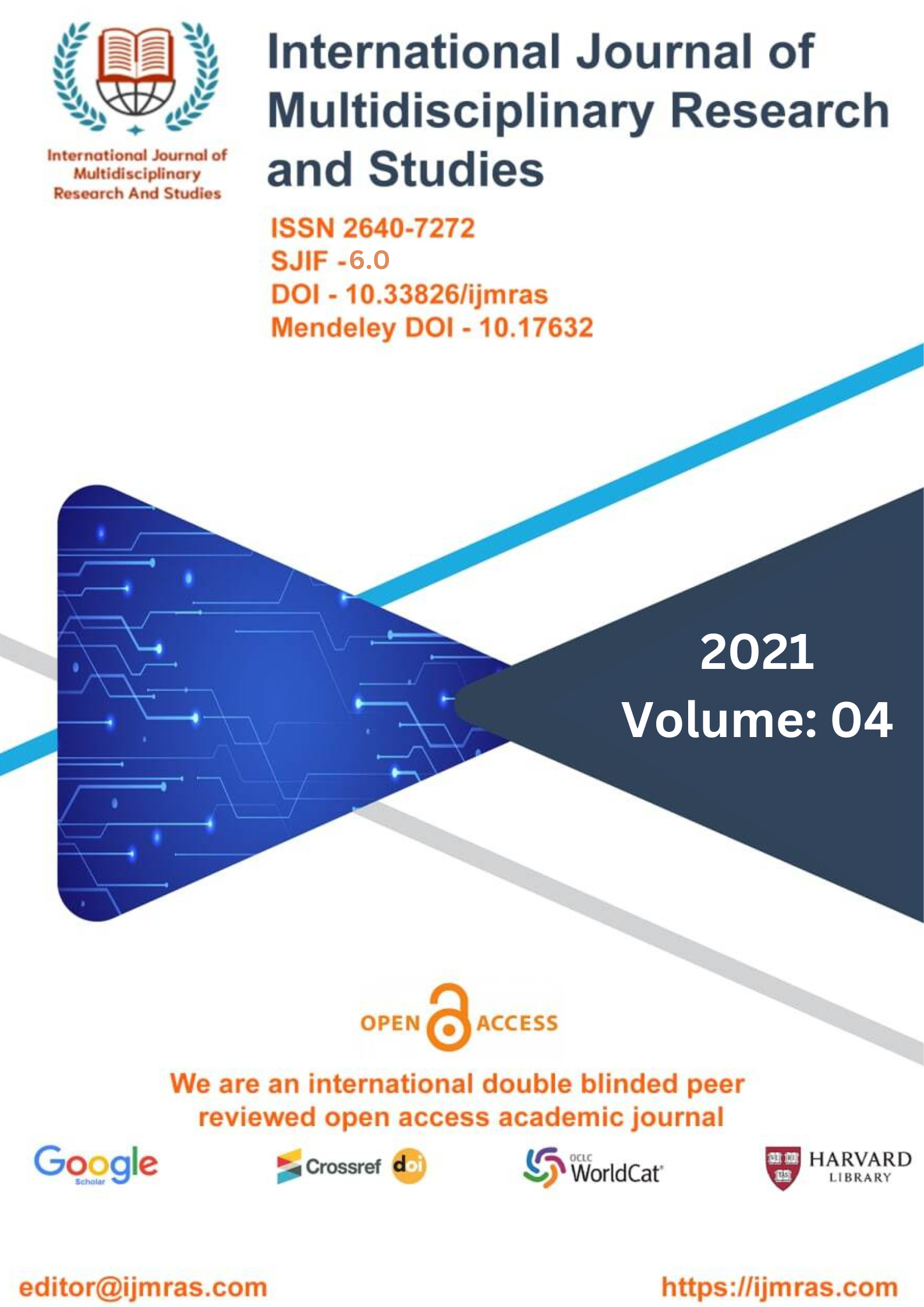IMPACT OF MODERNIZATION ON THE FAMILY LIFE AND SOCIAL COHESION OF AGRICULTURAL LACBORERS

Abstract
The institution of joint families has persisted throughout India's history and is still widely practised there now. The social and economic structure of India is compatible with the joint family system, and religion has also contributed to the preservation of a joint way of life in India. In their research, Davis and Vieira Messe found that "today, dramatic changes are unfolding in the spheres of civic, social, economic, and cultural life, which are altering the paradigm of family life." These shifts are having an impact on the day-to-day activities that families engage in. As the key organizing factor of rural ties, a person's settlement is gradually taking the place of their house as the primary focus of attention. Changes in practise are being brought about by the rule of law in a substantial way. The family is an essential component of the overall operational unit of the business. The form of the gadget is undergoing a number of different revisions at the moment. As a result of a couple entering an all-blood family, the bond that unites the family is going through a period of transition. It has been said by Mrs. Ras that "The traditional Indian family is undergoing a subtle but significant social shift at the moment. Indian women who have received an education are increasingly looking for ways to express themselves outside of the context of their families since they are cut off from the traditions and attributes associated with the traditional Indian family."
Keywords
Indian family, attributes, traditional Indian familyHow to Cite
References
Correlates of Family Formation: Khartoum, Sudan, 1945 - 75." Journal of Marria&e and the Family. Vol. 49, pp. 401-412.
Central Bank of Oman. 1989. Annual Report. Oriental Printing Press. Muttrah, Sultanate of Oman.
Hokenstad, Merl C. 1988. "Cross-National Trends and Issues in Social Service Provision and Social Work Practice for the Elderly." Journal of Gerontological Social Work. 12.
Key, William H. 1969. "Rural-Urban Differences and the Family." In John N. Edwards, The Family and Change. Alfred A. Knopf, Inc.: New York.
Khurshid, A. 1974. The Family in Islam. The Islamic Foundation. Nenelitho, United Kingdom.
Obikeze, D.S. 1987. "Education and the Extended Family Ideology: The Case of
Francis Fukuyama, The End of History and the Last Man . New York: The Free Press, 1992, pp. 68-69, 133-34.
Gavrov, Sergey; Klyukanov, Igor (2015). "Modernization, Sociological Theories of". In Wright, James D. (ed.). International Encyclopedia of the Social & Behavioral Sciences. Vol. 15 (2nd ed.). Oxford: Elsevier Science. pp. 707–713. ISBN 978-0-080-97086-8.[3]
Smelser, Neil J. 1992. “External and Internal Factors in Theories of Social Change,” pp. 369–94, in Hans Haferkamp and Neil J. Smelser (eds.), Social Change and Modernity. Berkeley, CA: University of California Press, pp. 370-81.
Ronald Inglehart and Christian Welzel, Modernization, Cultural Change, and Democracy. New York, NY: Cambridge University Press, 2005.
Seymour Martin Lipset, "Some Social Requisites of Democracy: Economic Development and Political Legitimacy," American Political Science Review Vol. 53, Nº 1 (1959): 69–105.
Ronald Inglehart and Christian Welzel, Modernization, Cultural Change, and Democracy. New York, NY: Cambridge University Press, 2005.
Peerenboom, Randall (2008). China Modernizes: Threat to the West or Model for the Rest?. p. 63. He suggests China will grant democratic rights when it is as modern and as rich as the West per capita.
Acemoglu, Daron, Simon Johnson, James A. Robinson, and Pierre Yared, "Income and Democracy." American Economic Review 98(3) 2008: 808-42.
Daron Acemoglu and James Robinson, "Non-Modernization: Power–Culture Trajectories and the Dynamics of Political Institutions." Annual Review of Political Science 25(1) 2022: 323-339, p. 324
License
Copyright (c) 2021 Rinku Kumari

This work is licensed under a Creative Commons Attribution 4.0 International License.
Individual articles are published Open Access under the Creative Commons Licence: CC-BY 4.0.




